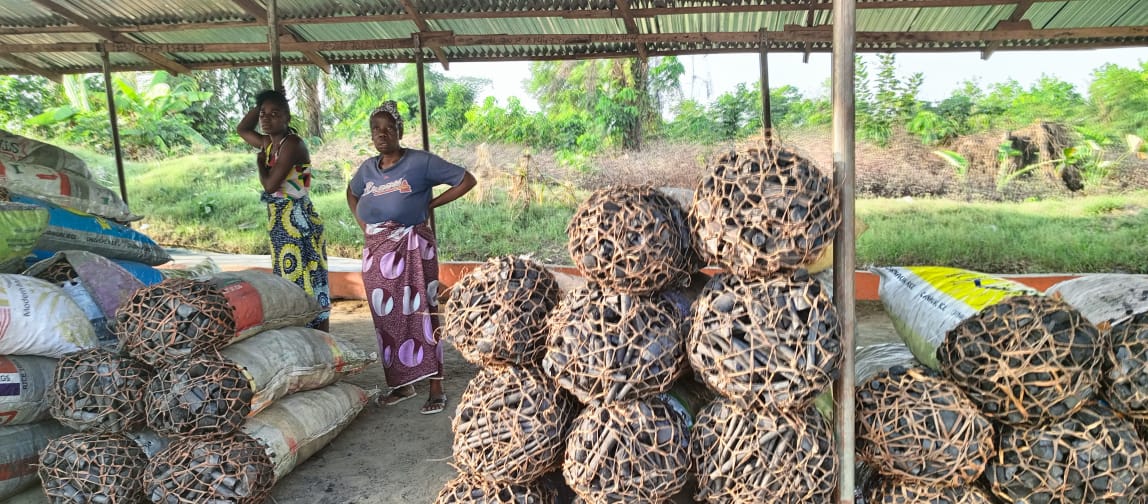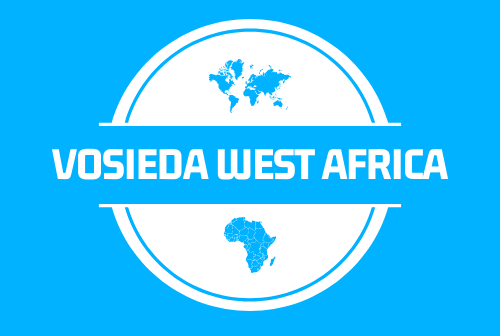Funder: This project is supported by the IKI Small Grants programme, which is part of the International Climate Initiative (IKI). IKI Small Grants are funded by the Federal Ministry of Economic Affairs and Climate Action (BMWK) and the Federal Foreign Office (AA) and carried out by Deutsche Gesellschaft für Internationale Zusammenarbeit (GIZ) GmbH.
Key Partners: Environmental Protection Agency of Liberia
Duration: January 1st – December 31st, 2023
Region: Western Africa
Country: Liberia
Sector: Conserving natural carbon sinks/forestry
In Liberia, approximately 70 percent of households do not have access to electricity and rely on fuelwood and charcoal for cooking. Particularly in rural areas, the widespread cooking practice with solid fuels causes severe implications for human health, forest degradation, and climate change. This IKI Small Grants project aims to improve rural households’ access to energy-efficient cookstoves and improved charcoal production technology to mitigate Green House Gas (GHG) emissions, reduce deforestation, and improve health and rural livelihoods in Bong County, Central Liberia. The project aims to directly benefit 1,000 rural households and two charcoal associations. The targeted households are in three townships. Especially low-income households that are either headed by women or children benefit from the project.
INITIAL SITUATION
In the West African nation of Liberia, approximately 70 percent of households do not have access to electricity and rely on traditional biomass (fuelwood and charcoal) for cooking. However, the local charcoal production method mainly uses indiscriminate logging and an inefficient, traditional system leading to emissions of methane and other Green House Gases into the atmosphere, thus contributing to climate change.

TARGET GROUP
The project aims to directly benefit 1,000 rural households and two charcoal associations in Bong County. The households are in three townships or locations which are densely populated with most households depending on charcoal production. Criteria for selection include on the one side a household headed by a woman or child and relying on open fires or traditional stoves that produce a lot of smoke. And on the other side, households are involved in charcoal production and marketing charcoal for livelihoods.
APPROACH AND ACTIVITIES
The project will empower low-income rural households to gain sustainable access to improved energy technologies and services. It will facilitate the building of three charcoaling kilns for Bong County communities and train two charcoal associations for sustainable charcoal production to fight poverty, reduce GHG emissions, and decrease illegal wood harvesting. Secondly, it will empower 1,000 households to have sustainable access to improved cooking technologies that use less biomass fuel.
Concrete activities of the project include among others the training of up to ten local artisans on fuel-efficient cookstoves constructions capable of reducing fuel consumption by more than half. The project will also encourage charcoal producers to diversify their livelihoods to grow crops along the tree plantations destined for charcoal production.
Additionally, the project encourages beneficiaries to be selective in their harvesting practices and plume dry branches instead of cutting the entire big trees. At the same time, the project will train women and youth groups in manufacturing charcoal briquettes. In addition to improving the efficiency of charcoal production, the briquettes are made from agricultural waste. Making briquettes and marketing them will significantly increase women’s and youth’s incomes and reduces their dependence on natural forests for charcoal production.
In another step, the project will collaborate with beneficiaries’ communities and establish three tree nurseries containing 6,000 seedlings across the beneficiaries’ communities. The tree nurseries will be created on the community’s land. Meanwhile, seedlings will be distributed to households to create individual delegated charcoal plantations at their household levels.
Towards the later stage of the project, the organization partners with community leaders and charcoal associations, to identify 100 households with access to land and to distribute 6,000 tree seedlings to 100 households to establish delegated charcoal plantations to ensure a sustainable biomass source to produce charcoal. Meanwhile, there will be training with 100 local stakeholders about climate change and maintaining and utilizing the delegated plantation for fuelwood and charcoal production to avoid deforestation and climate change.
In an overarching goal, the project approach includes the spread of information to local, national, and international stakeholders about the project, the importance of clean cookstoves, improved forest management, sustainable charcoal production, and the need to lower GHG emissions to mitigate climate change.
Key facts
Sector: Conserving natural carbon sinks/forestry
Domain: Climate and Environment
Benefiting zone: Liberia
Nature: Action grant
Duration: January 1st – December 31st, 2023
Status: Operational
